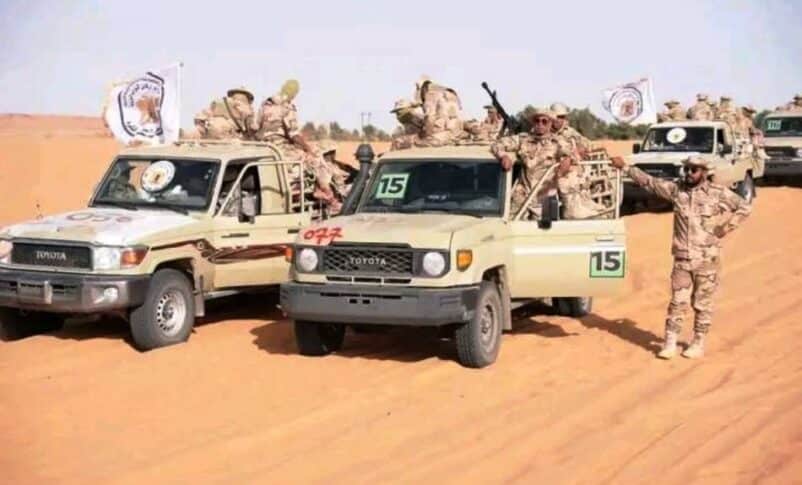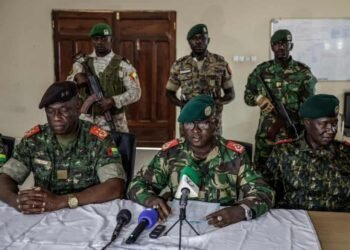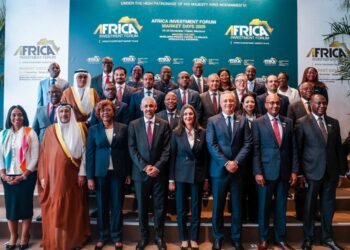Tensions flared in Northeast Africa after Sudan accused Libyan commander Khalifa Haftar of launching a joint cross-border assault with the paramilitary Rapid Support Forces (RSF), describing the incursion as a “flagrant aggression” sponsored by the United Arab Emirates (UAE).
Sudan’s military and Foreign Ministry released coordinated statements condemning the attack in the sensitive tri-border region that links Sudan, Libya, and Egypt. Both institutions asserted Sudan’s legitimate right to defend its sovereignty in the face of what they claim is escalating foreign interference.
According to the Sudanese army, RSF fighters — “supported by Khalifa Haftar’s Libyan forces” — targeted military positions in the contested area, seeking to take control of the strategic zone. The army described Haftar’s involvement as “unprecedented,” warning that the assault violates international law and forms part of a broader “international and regional conspiracy.”
In a sharper rebuke, the Foreign Ministry accused the UAE of engineering the attack through “the Abu Dhabi regime,” calling it a “dangerous escalation” and a growing threat to the security of the entire region. The ministry further claimed Sudan’s border with Libya has turned into a key corridor for the movement of weapons and mercenaries, “with UAE funding and coordination from Haftar’s forces.”
The flare-up follows a June 6 clash in which fighters from Haftar’s “Subul al-Salam” battalion reportedly advanced three kilometres into Sudanese territory. A pro-Sudanese army group confronted them near Mount Arkenu, resulting in the deaths of two Libyan fighters and the capture of two more. A second attack by another group from Kufra, Libya, followed shortly after, inflicting further losses on the Sudanese side.
UAE Blamed For Regional Destabilisation
Sudan’s army spokesman alleged that the coordinated RSF-Haftar incursion intended to “seize the area.” At the same time, RSF-aligned media circulated videos purporting to show RSF fighters capturing a Sudanese army position in the region. The authenticity and implications of these videos have further stirred debate about control of the territory.
The Foreign Ministry extended its criticism beyond regional actors, accusing Western powers and international institutions of passive complicity. It stated that “the leniency of the Security Council and Western powers” has allowed the UAE and its allies to become emboldened, enabling them to interfere directly in Sudan’s internal conflict. The ministry urged the United Nations, African Union, and Arab League to take a firm stand and publicly condemn the assault.
The contested border region has long been a key supply route for the RSF, and Sudan has consistently accused Haftar of allowing UAE-funded military aid to pass through eastern Libya. Bases such as Ma’tan al-Sarra have been cited as operational hubs for RSF forces receiving logistical support.
As the conflict between the army and RSF intensifies, both factions have ramped up deployments across the desert terrain. Control over these remote but strategically vital routes could shape the future of the war, and with international involvement rising, the tri-border zone risks becoming a proxy battleground for foreign powers.
READ ALSO: Cedi to Remain Stable Against Major Currencies- Finance Minister Assures Ghanaians























